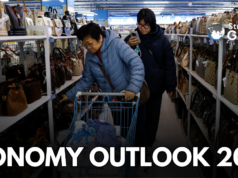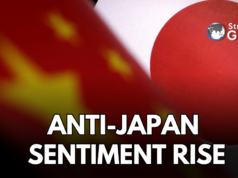China Occupied Tibet
“India’s position at that time (China’s invasion of Tibet in 1950) was that the invasion was wrong. The matter should be settled peacefully. And Tibet has internal autonomy. Now, all this has been violated by China. So China has violated the basis on which India and others formulated their policies. It is time to revisit the issue.” On ‘The Gist’, Ambassador Dilip Sinha speaks to StratNews Global Associate Editor Amitabh P. Revi. Ambassador Sinha is the author of the book ‘Imperial Games In Tibet: The Struggle for Statehood And Sovereignty’. You can find it in bookstores and online. Above all, it will officially launch in July. Ambassador Sinha has served as India’s Envoy to the UN in Geneva, was the Former Head of the UN Division and Ex-Head of the PAI(Pakistan, Afghanistan, Iran) Division in the Ministry of External Affairs.
“China Claims Everything
“In his book, Ambassador Sinha demolishes the CCP (Chinese Communist Party) attempt to rewrite history by claiming Tibet was always part of China. “China now claims that even Chinggis Khan was Chinese. So they claim everything. But, the Mongols were the first to rule over Tibet. Thereafter Tibet became independent. The Manchus conquered China in 1721. When the Manchu dynasty collapsed in 1912, Tibet declared independence. Tibet was independent until 1950 when Communist China invaded.” Infact in history there were times when Tibetan rulers invaded China and captured the then capital.
Ambassador Dilip Sinha discusses:
- The recent U.S. bipartisan lawmakers’ visit to the Dalai Lama in Dharamsala.
- Prime Minister Narendra Modi, NSA Ajit Doval and EAM Dr S. Jaishankar meeting the delegation subsequently.
- The latest Tibet Act passed by both Houses in the U.S.
- Whether the U.S. is firing off India’s shouldersIndia’s Tibet and China policy post-independence to the present.
- The Great Game over Tibet.China’s renaming of locations in Tibet, Xinjiang and Arunachal Pradesh.
- Debunking Chinese imperialism which is now presented as a CCP narrative of the so-called century of humiliation.
- The criticality of the Dalai Lama’s succession.
- China crushing religion on one hand and usurping religious authority on the other.
- Whether Xi Jinping fears religion.
- What it will take for Tibet to be independent again.
- And how India and Tibet helped preserve each others customs, traditions and manuscripts during invasions.
The 'Eye' of the story not the 'I' of the story. That's Amitabh Pashupati Revi's credo from the beginning of his professional journey in 1995. From conflicts in the war zones of Afghanistan, Syria, and Iraq to nuances of international politics in the Maldives,Thailand, and South Sudan, Amitabh has reported from all the world's continents, except for Antarctica(so far). Though, he has documented the world's third pole, the Siachen Glacier!
Amitabh reports and produces documentaries on the two-front China-Pakistan threat to India. His ground reports from Arunachal Pradesh and Ladakh have received viewership in the hundreds of thousands. Amitabh has interviewed world leaders, top global analysts, and experts in India, Russia, the United States, and Australia as well. Along the way, he’s picked up the Russian language, the Ramnath Goenka Award for his reporting on the 'Islamic State' terrorist group in Iraq, the Khaled Alkhateb Award for his reporting from Palmyra, Syria, and the UN Dag Hammarskjöld Distinguished Journalist Fellowship. Last but not least, as a founder member of StratNews Global, Amitabh helps lead the reporting, editorial, production, and administration teams at StratNews Global, BharatShakti, and InterStellar on their journey ahead.




